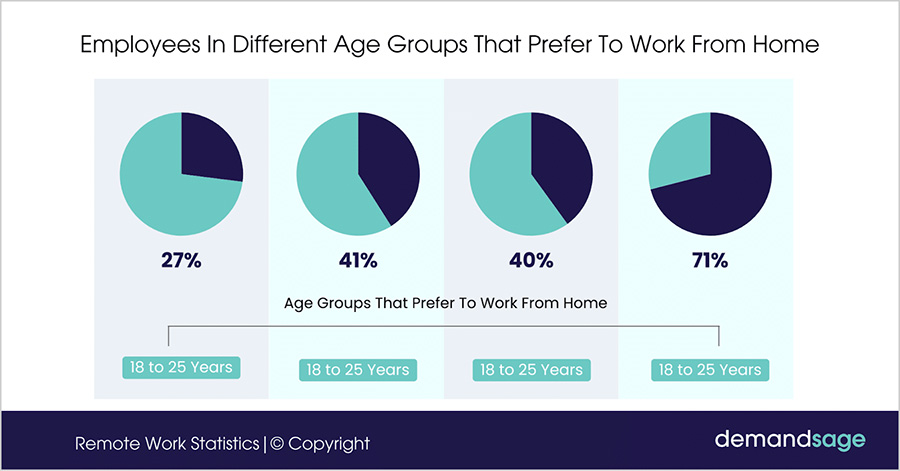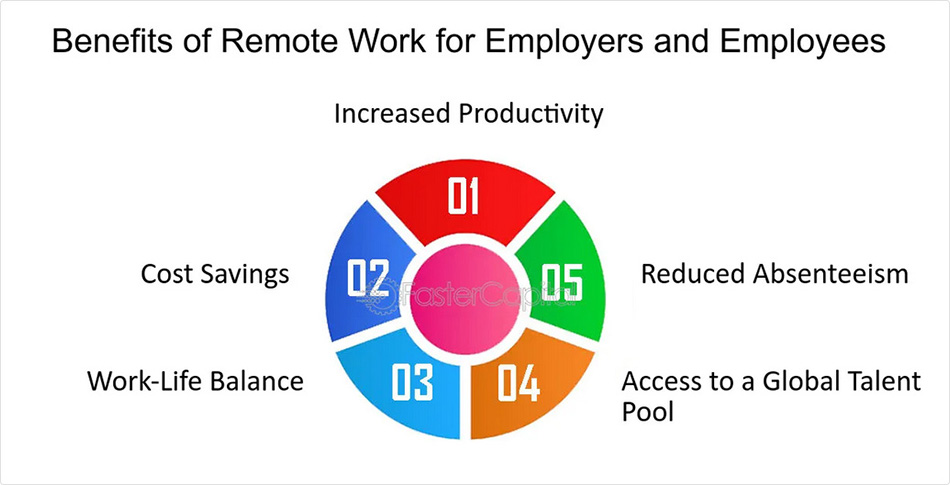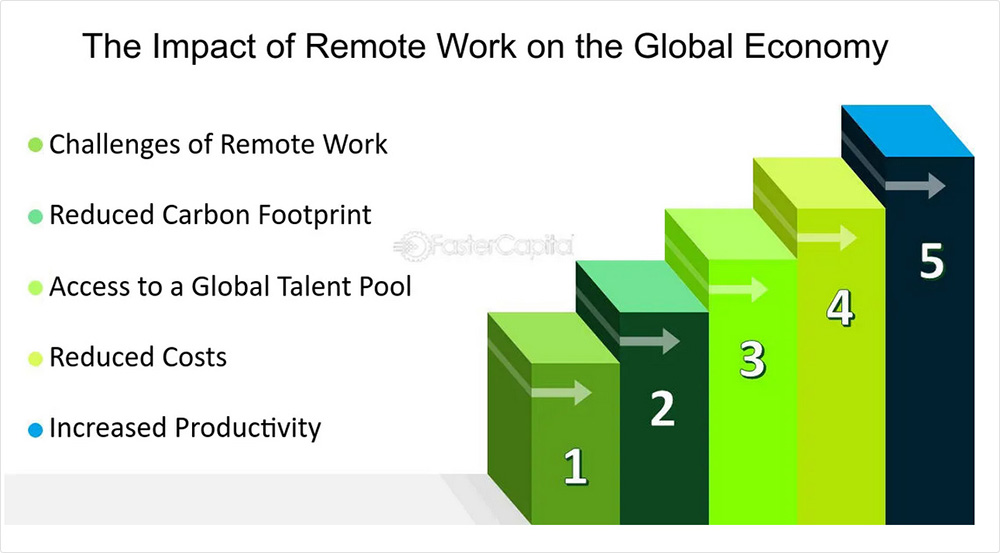
Introduction
As the world adapts to new norms, both companies and employees are rethinking the traditional 9-to-5 office setup. Remote work has surged in popularity, offering a fresh lifestyle choice: digital nomadism.
Remote working, also known as telecommuting, is a work arrangement where employees can perform their job duties, using digital tools and technology, from locations other than a central office.
A digital nomad is someone who works remotely while traveling to different locations, leveraging technology to maintain a location-independent lifestyle.
Remote work, initially a necessity during the COVID-19 pandemic, has permanently transformed our work culture. While some praise it for enhancing work-life balance and reducing costs, others worry about its impact on productivity and corporate culture.
The number of employees working remotely prior to the pandemic was 30%, compared to 48% now *
* Gartner
Key Takeaways
Remote work and digital nomadism have transformed work culture by offering flexibility, enhancing talent diversity, and increasing job satisfaction.
While these trends present significant benefits such as reduced overhead costs and improved employee productivity, they also pose challenges in communication, team cohesion, and maintaining a healthy work-life balance.
The future of work will see increased adoption of remote policies, advancements in digital infrastructure, and more nomad-friendly regulations.
Companies that successfully blend remote and traditional work environments will attract top talent and build sustainable brands.

The Rise of Remote Work and Digital Nomadism
The ability to work remotely has revolutionized many industries, opening up a global talent pool that was once restricted by geography, allowing companies to build diverse and highly skilled teams.
During the "Great Resignation", many professionals, re-evaluating their work-life balance and job satisfaction, left their jobs searching for better opportunities. Companies that have adapted by offering flexible work arrangements, continuous learning opportunities, and better management of workloads, have retained talent and avoided a significant loss of skilled employees.
Parallel to the rise of remote work is the increasing popularity of digital nomadism. This trend reflects a shift in priorities among professionals who value flexibility, adventure, and the ability to integrate work with personal exploration. This movement is not just about working from different places but also about experiencing new cultures and environments.

Business Benefits of Supporting Remote Work
1- Access to a Global Talent Pool
By supporting remote work, companies can hire the best talent from anywhere in the world, removing geographical barriers and enhancing diversity.
2- Reduced Overhead Costs
With fewer employees needing office space, companies can significantly save on real estate, utilities, and other office-related expenses.
3- Higher Employee Retention
Offering remote-work options can lead to higher job satisfaction and loyalty, reducing turnover rates.
4- Enhanced Creativity and Innovation
Exposure to different cultures and environments can inspire digital nomads and remote workers, fostering creativity and innovation and contributing to better solutions for the company.
5- Scalability and Flexibility
Remote work policies allow companies to scale their operations more flexibly. Businesses can quickly adapt to changing market conditions and demands without the constraints of physical office space.
6- Environmental Impact
Decreasing the need for commuting and office space contributes to sustainability goals and can reduce the company’s carbon footprint.

Source: DemandSage
Benefits to Employees
1- Flexibility and Enhanced Work-Life Balance
Working remotely offers employees the ability to design their work schedules around personal commitments and preferences, allocating time for their families and reducing burnout.
2- Reduced Commute and Cost Savings
Eliminating daily commutes allows employees to reclaim hours previously spent traveling to and from the office, saving them time and money and reducing stress levels.
3- Increased Productivity and Better Focus
Remote workers often report higher productivity levels due to fewer office-related distractions and more personalized work environments. Studies have shown that working from home can boost productivity by 13% and significantly reduce interruptions. A University of California Irvine study found that a typical office worker is interrupted every 11 minutes, and it takes twice as long to get back on track.
4- Greater Autonomy and Empowerment
Remote workers and digital nomads often feel more autonomous and empowered, leading to higher engagement and job satisfaction and fostering a sense of ownership and control over their professional lives.

Source: FasterCapital
The Challenges
For Employers
- Communication Barriers: Maintaining clear and effective communication in a remote environment can be difficult.
- Team Cohesion and Company Culture: Keeping a strong team spirit and preserving company culture digitally, requires extra effort.
- Compliance and Paperwork: Supporting digital nomads involves dealing with complex compliance issues, such as tax obligations and insurance requirements.
- Cybersecurity Risks: Remote work increases the risk of data breaches and requires robust cybersecurity measures.
- Managing Remote Teams: Scaling and maintaining processes for a remote workforce can be intimidating, especially during rapid transitions.

For Employees
- Isolation and Lack of Communication: Remote employees can feel isolated and disconnected from their team, impacting their sense of belonging and affecting collaboration and team cohesion.
- Distractions and Time Management: Household chores, family members, and social media can distract remote workers, making time management challenging. Blurring the lines between work and personal life can lead to overworking and burnout.
- Technology and Infrastructure: Ensuring reliable access to necessary tools and resources can sometimes be difficult.

Source: FasterCapital
Where It's All Heading
No one knows what the future of remote work and digital nomadism will look like, but these workstyles will continue to be shaped by emerging trends and technological advancements.
1- Increased Adoption of Remote Work Policies
More businesses are recognizing the benefits of remote work, leading to further normalizing remote and hybrid work models.
2- Growth in Digital Infrastructure
Advancements in internet connectivity, cybersecurity, and digital tools will support the increasing demand for remote work, making it even more seamless to work from anywhere.
3- Rise of Nomad-Friendly Policies
More countries will introduce nomad-friendly visas and policies, making it easier for remote workers to live and work legally in different parts of the world.
Modern employees would choose to spend 40% of their time working from home *
* Intuition
4- Focus on Sustainability and Social Impact
Companies will need to prioritize ESG strategies (environmental, social, and governance), reducing environmental footprints and contributing to community welfare.
5- Changing Work Dynamics
Location-based pay may be abolished, contracts will evolve, and competition for roles will increase.
6- Blurring Lines Between Work and Leisure
As more people work remotely and travel while working, the distinction between work and leisure will continue to blur.

In Conclusion
The rapid growth of remote work and digital nomadism has been one of the most transformative workplace shifts of our time. While these trends offer incredible opportunities to redefine how and where we work, they also introduce new challenges that organizations must proactively address. By adopting a balanced and forward-thinking approach, companies can effectively navigate this revolution, blending the best of remote and traditional work environments. Those who succeed in this endeavor will attract top talent and build sustainable, successful brands.
The future of work is here, offering an exciting journey that promises to reshape our professional and personal lives in remarkable ways.